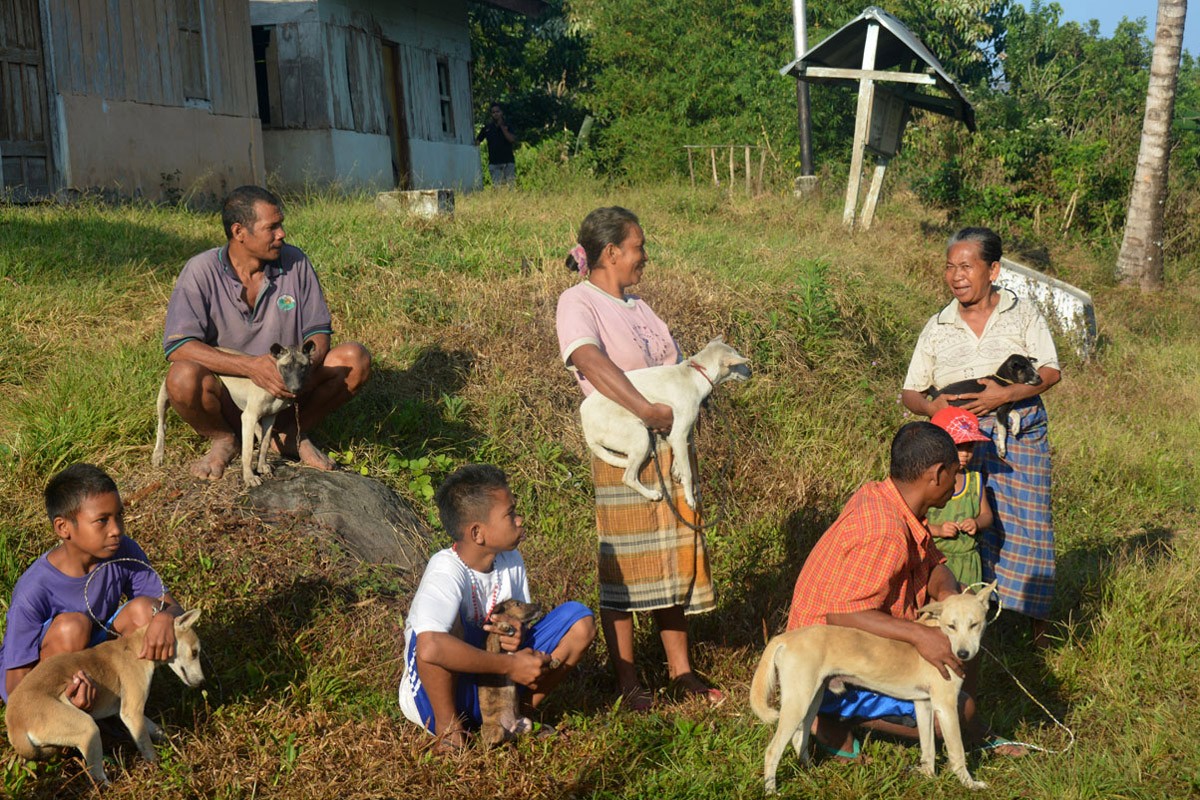Popular Reads
Top Results
Can't find what you're looking for?
View all search resultsPopular Reads
Top Results
Can't find what you're looking for?
View all search resultsDeath toll in latest rabies outbreak in West Nusa Tenggara rises to 15
Change text size
Gift Premium Articles
to Anyone
R
abies has killed at least 15 people in West Nusa Tenggara’s Dompu regency to date with more than 2,000 dog bites reported since the outbreak of the animal-transmitted disease began in the province last year.
A 46-year-old resident of Riwo village in the regency’s Woja district became the latest fatality after she died while receiving treatment at Dompu General Hospital on March 5.
The head of the Dompu Animal Husbandry and Health Agency’s Animal and Veterinary Health Department, Mujahidin, said the woman had been admitted to the hospital at 6 p.m. on March 4.
He said the victim had suffered from disorientation with symptoms of excessive salivation, breathlessness, excessive sweating and extreme pain all over the body.
She also showed tell-tale signs of rabies, such as hydrophobia, photophobia and anemophobia.
According to the record, the woman was bitten by a stray dog in the thigh as she was clearing a plot of land for corn crops in October last year.
"She never received the rabies vaccine after the incident," Mujahiddin said.
Dompu Health Agency head Iris Juwita Kartianti confirmed to The Jakarta Post that, up until March 8, at least 2,097 people in the regency had reported being bitten by dogs since the rabies outbreak began last year.
However, she said most of the cases had been handled properly with fast response and immediate vaccination.
The health agency also vowed to enhance its capacity in handling rabies in Dompu by providing more rabies vaccines and serums licensed by the Health Ministry at health facilities across the regency.
"Local officials have formed rabies mitigation teams that will be placed at districts and villages," Iris said, adding that the Dompu General Hospital had prepared isolation rooms to treat rabies patients.
The regencies of Dompu and Sumbawa declared emergency status for rabies in February last year following an outbreak of the disease via dog bites, followed by Bima regency, which declared the emergency status in June.
West Nusa Tenggara Health Agency head Nurhandini Eka Dewi said on Monday that the emergency status for rabies in Sumbawa, Dompu and Bima was still in place.
"The status will remain in place as long as there are cases of dog bites. It will only be lifted if there is no report of dog bites within two years," she said in the provincial capital of Mataram.
Although no dog bites had been reported in Sumbawa over the past two months, Nurhandini said rabies remained a threats in the province, since the stray dog population was still high.
"For cases of rabies in humans, we can directly inject rabies vaccines or serums. However, it's different in the case of stray dogs with rabies. It is much more complicated, as there are many of them," she said.
She added that the administrations of Bima and Dompu had formed teams to reduce the number of stray dogs but that was an ongoing struggle as the dogs were moving around the cities.
Rabies infection was hard to detect as clinical symptoms may appear only months or even two years after a person was bitten by a dog, cat, monkey or other animal carrying rabies, she said.
After the entry of the virus through an animal bite, the virus travels in the blood circulation along the nerves to the spinal cord. With no immediate treatment, the virus could end up at the brain and at this point, it would be deadly.
"Once [the virus] attacks the brain, respiratory organ disorders will follow. That's why there should be immediate action after an animal bite," she said.
Furthermore, the health agency vowed to keep spreading information on first-aid to treat wounds after being bitten by an animal, which would decrease the risk of rabies infection.
"Right after we are bitten, we have to wash our hands with flowing water and soap for 15 minutes. After that, 80 percent of the virus will be gone and the rest can be taken care of by medical treatment," she said. (trn)










